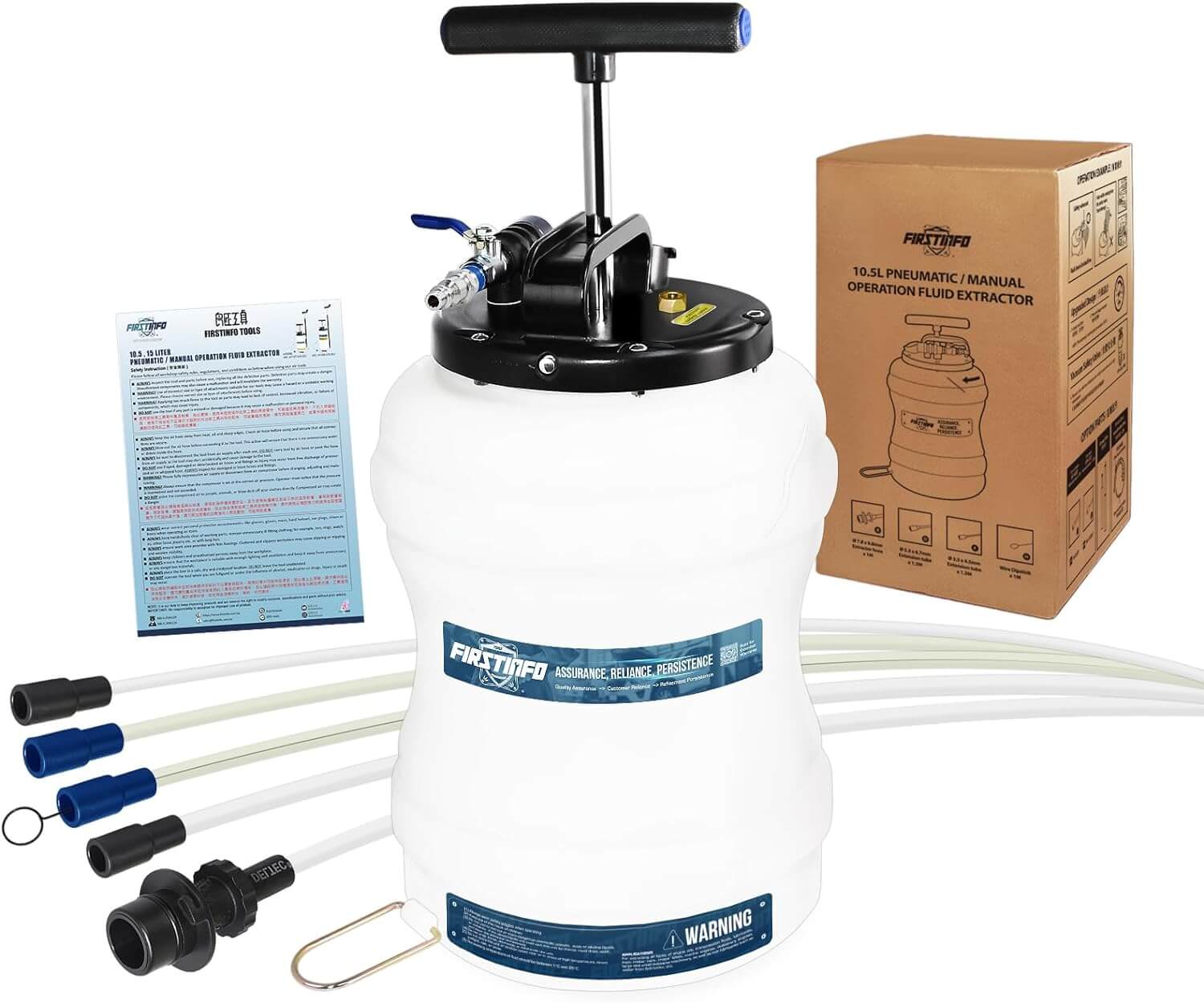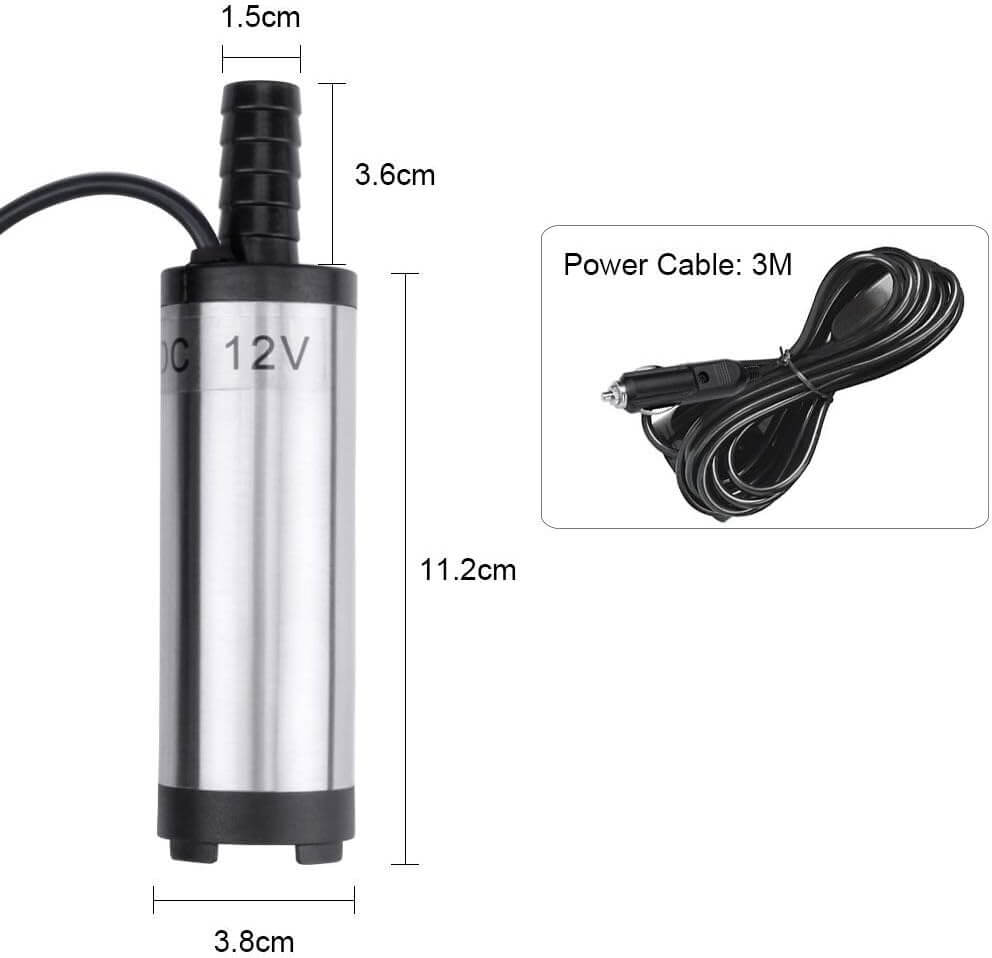The Science Of Oil Degradation In Automotive Engines.
Oil degradation is an inevitable process that occurs in automotive engines over time, leading to reduced performance and potential engine damage. Understanding the science behind this degradation is crucial for every car owner.
In this article, we’ll explore the various factors that contribute to oil degradation and its implications on engine health. Whether you’re a car enthusiast or simply want to extend the lifespan of your vehicle, this deep dive into the science of oil degradation will provide you with valuable insights and practical tips to ensure your engine stays running smoothly for longer.
What is Oil Degradation?
Oil degradation refers to the process by which engine oil gradually deteriorates and loses its effectiveness in lubricating and protecting the engine components. Over time, exposure to various factors such as heat, moisture, contaminants, and mechanical stress can cause the oil to degrade, leading to potential problems for the engine.
Definition of Oil Degradation
Oil degradation can be defined as the breakdown of the chemical composition and physical properties of engine oil, resulting in a decrease in its lubricating capabilities and overall performance. This degradation can occur due to several factors, including chemical reactions, environmental conditions, and the quality of the oil itself.
Causes of Oil Degradation
There are several causes of oil degradation, each contributing to the gradual breakdown of the oil’s properties. One of the main causes is oxidation, which occurs when the oil reacts with oxygen in the presence of heat. Thermal cracking, another cause, happens when the high temperatures in the engine cause the oil molecules to break down. Additionally, the depletion of additives in the oil, which are designed to enhance its performance, can also lead to degradation.
Effects of Oil Degradation
The effects of oil degradation can be detrimental to the performance and lifespan of an engine. As oil loses its ability to lubricate effectively, friction between the engine’s moving parts increases. This increased friction can lead to accelerated wear and tear on the engine components, resulting in reduced engine performance and potential mechanical failures. Furthermore, oil degradation can lead to the formation of harmful deposits and sludge in the engine, further impeding its efficiency.
Chemical Reactions in Oil Degradation
Oxidation
Oxidation is a chemical reaction that occurs when oil reacts with oxygen, leading to the breakdown of its chemical structure. This reaction is accelerated by high temperatures and exposure to air. Oxidation causes the oil to thicken, form sludge, and increase acidity, reducing its ability to lubricate effectively.
Thermal Cracking
Thermal cracking is a process in which high temperatures cause the long-chain hydrocarbon molecules in the oil to break down into smaller, less stable molecules. As a result, the oil becomes thinner and loses its ability to provide sufficient lubrication, leading to increased friction and wear on engine components.
Additive Depletion
Engine oils are formulated with various additives to enhance their performance and protect the engine. Over time, these additives can become depleted due to their reactions to contaminants and the operating conditions. As the additives deplete, the oil loses its ability to provide optimal protection against wear, corrosion, and other damaging factors.
Factors Affecting Oil Degradation
Temperature
Temperature plays a significant role in oil degradation. High temperatures cause the oil to break down more quickly, accelerating oxidation and thermal cracking. On the other hand, extremely low temperatures can lead to oil thickening, reducing its ability to flow and lubricate effectively.
Humidity
Humidity, or the presence of water vapor, can contribute to oil degradation. Water can enter the engine through condensation or leaks, and it can react with the oil, causing chemical changes and promoting oxidation. Moisture can also accelerate the formation of harmful sludge and deposits in the engine.
Engine Load
The workload placed on the engine can affect the rate of oil degradation. Higher engine loads, such as towing heavy loads or driving in hilly terrain, generate more heat and put greater stress on the oil. This increased workload can cause the oil to degrade more quickly, reducing its performance and protective capabilities.
Driving Conditions
Driving conditions, such as stop-and-go city driving or frequent short trips, can also contribute to oil degradation. In these conditions, the engine may not reach its optimal operating temperature, leading to incomplete combustion and the accumulation of contaminants in the oil. Additionally, driving in dusty or dirty environments can introduce particles that contaminate the oil and accelerate its degradation.
Oil Quality
The quality and composition of the oil itself can impact its susceptibility to degradation. Higher-quality oils with superior base stocks and robust additive packages tend to have better resistance to oxidation and thermal degradation. Choosing the right oil for your engine, based on the manufacturer’s recommendations, is important in preventing premature oil degradation.
Monitoring Oil Degradation
Oil Analysis
Oil analysis involves periodically collecting and analyzing a small sample of the engine oil to evaluate its condition. This analysis provides valuable insights into the oil’s properties, such as viscosity, level of contamination, and presence of wear metals. By regularly monitoring the oil’s condition through analysis, potential issues can be identified early, allowing for proactive maintenance and reducing the risk of engine damage.
Viscosity Measurements
Viscosity is a critical property of engine oil that determines its ability to flow and lubricate effectively. Regularly measuring the viscosity of the oil can indicate any changes that may indicate degradation. Deviations from the recommended viscosity range can signal the need for an oil change or further investigation into potential issues.
Base Number Testing
The base number (BN) of an oil refers to its alkalinity reserve, which helps neutralize the acidic byproducts of combustion and other contaminants. Base number testing measures the amount of acid required to neutralize the alkaline reserves in the oil. Monitoring the base number over time can help determine the oil’s ability to combat acid buildup and prevent corrosive damage to the engine.
Preventing Oil Degradation
Regular Oil Changes
Regularly changing the engine oil according to the manufacturer’s recommendations is crucial in preventing oil degradation. Fresh oil provides optimal lubrication and protection, reducing the risk of excessive friction, wear, and component damage. Regular oil changes also help remove any accumulated contaminants and sludge, ensuring the engine operates at its best.
Proper Engine Maintenance
Proper maintenance of the engine, including routine inspections, timely repairs, and adherence to recommended service intervals, can significantly contribute to preventing oil degradation. Addressing small issues promptly, such as fixing leaks and maintaining appropriate coolant levels, can help avoid more significant problems that can accelerate oil degradation.
Monitoring Driving Habits
Being mindful of driving habits can help minimize oil degradation. Avoiding excessive engine loads, practicing smooth acceleration and deceleration, and allowing the engine to reach its optimum operating temperature can all contribute to reducing oil degradation. Additionally, avoiding prolonged idle times and short trips when possible can minimize the exposure of the oil to extreme temperature conditions and contamination.
Impact of Oil Degradation on Engine Performance
Increased Friction
Oil degradation leads to increased friction between the moving parts of the engine. As the oil breaks down and loses its lubricating properties, the metal surfaces come into direct contact, resulting in higher friction levels. Increased friction not only reduces engine efficiency but also causes overheating and accelerated wear on critical components.
Reduced Lubrication
Degraded oil is less effective in maintaining a lubricating film between moving components. This reduced lubrication can lead to metal-to-metal contact, resulting in increased wear, pitting, and scoring on critical engine parts. Insufficient lubrication can also cause parts to seize or lock up, leading to catastrophic engine failure.
Engine Wear and Tear
The cumulative effects of oil degradation, such as increased friction and reduced lubrication, contribute to accelerated wear and tear on the engine. Over time, this can result in reduced engine performance, decreased fuel efficiency, and the need for premature repairs or engine replacement. Ensuring the oil is regularly changed and maintained can help minimize the risk of significant engine damage.
Environmental Effects of Oil Degradation
Air Pollution
Oil degradation can contribute to air pollution through the release of harmful gases and particulate matter. As oil breaks down, it can release volatile organic compounds (VOCs) and other pollutants into the atmosphere. These emissions can contribute to smog formation, greenhouse gas emissions, and respiratory health issues.
Water Pollution
When oil degrades, it can contaminate water sources if it enters streams, rivers, or groundwater. This can occur through oil leaks, spills, or improper disposal practices. Oil pollution in water bodies can have severe ecological consequences, affecting aquatic life, contaminating drinking water sources, and disrupting ecosystems.
Soil Contamination
In cases where degraded oil is improperly disposed of or spills occur, soil contamination can result. Oil can seep into the soil, leading to long-term environmental damage. Contaminated soil can have detrimental effects on plant growth, soil fertility, and overall ecosystem health.
Recycling and Disposal of Degraded Oil
Environmental Regulations
Proper handling and disposal of degraded oil are essential to prevent environmental contamination. Environmental regulations vary by jurisdiction but typically require that used oil be collected, stored, and disposed of in an environmentally responsible manner. Guidelines and regulations help ensure that degraded oil is recycled or disposed of safely, minimizing the potential for harm to human health and the environment.
Recycling Techniques
Recycling degraded oil is a common practice that can be carried out through various techniques. The most common method is re-refining, which involves removing contaminants and impurities from the degraded oil to restore its original properties. Re-refined oil can then be used to produce new lubricating oil products, reducing the demand for virgin oil resources.
Waste Oil Disposal Methods
If recycling is not feasible, proper disposal methods for degraded oil should be followed. This typically involves taking the degraded oil to an approved collection center or waste management facility. Specialized processes, such as incineration or co-processing, may be used to safely dispose of the oil while minimizing environmental impact.
Advancements in Engine Oil Technology
Synthetic Oils
Synthetic oils have been developed to address the limitations of conventional mineral-based oils. These oils are formulated with specially engineered molecules that provide superior stability, resistance to oxidation, and extended performance life. Synthetic oils offer enhanced protection against oil degradation, engine wear, and improved fuel efficiency.
Additives and Detergents
Additives and detergents are key components in modern engine oils, designed to improve their performance and protect the engine. Additives provide enhanced oxidation resistance, reduce friction, and prevent the formation of harmful deposits. Detergents help keep the engine clean by suspending and removing contaminants, reducing the risk of oil degradation.
Nanoengineering
Advancements in nanoengineering have contributed to the development of nanotechnology-based lubricants. These lubricants utilize nanoparticles to enhance the oil’s lubrication, reduce friction, and provide superior protection against wear. Nanoengineered oils offer improved resistance to heat, oxidation, and degradation, promoting longer engine life and improved performance.
Conclusion
Understanding oil degradation and its various causes, effects, and preventive measures is crucial for maintaining the performance and longevity of automotive engines. By regularly monitoring the condition of the oil, practicing proper maintenance, and following recommended oil change intervals, you can minimize the risk of oil degradation and the associated negative impacts on engine performance and the environment.
Additionally, advancements in engine oil technology continue to offer new solutions for improving oil performance and protecting engines, further enhancing the reliability and efficiency of automotive systems.


